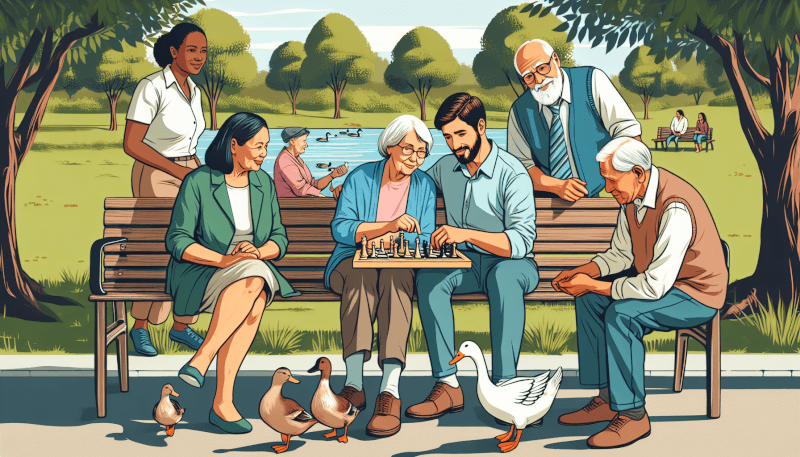As you navigate through the golden years of life, fostering meaningful relationships takes on an even greater significance. In this article, we explore the power of genuine connections and the positive impact they can have on your overall well-being. Discover practical tips and heartfelt advice on how to forge lasting bonds with loved ones, friends, and even new acquaintances that will enrich your life and bring joy to your days. Embrace the beauty of human connection and cultivate relationships that will light up your world in the twilight years.
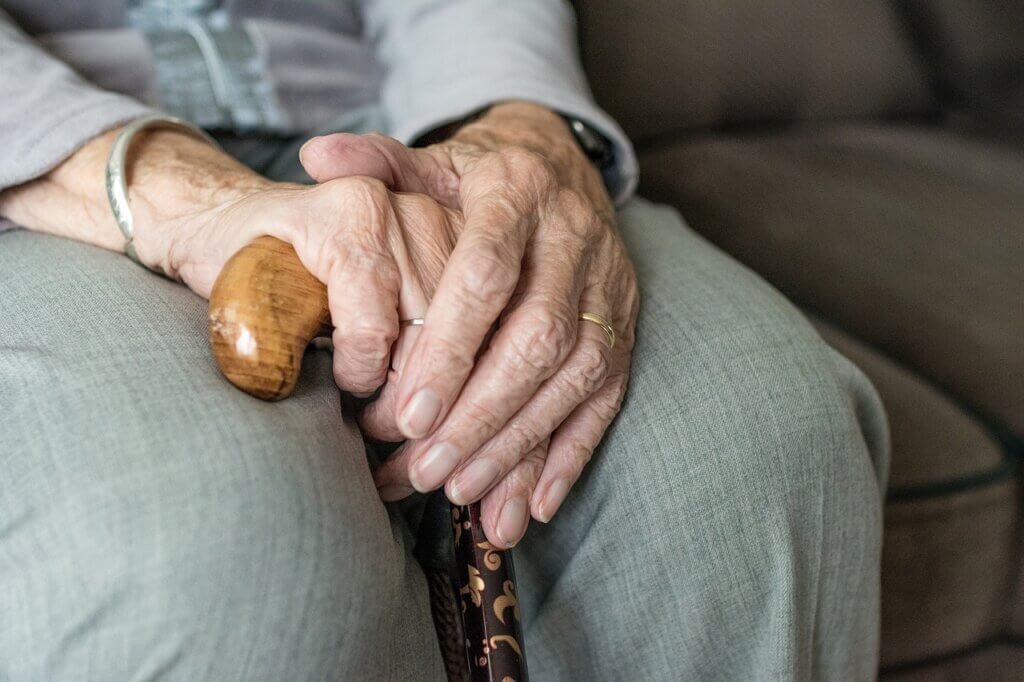
Building a Supportive Network
Joining Social Clubs and Community Groups
Joining social clubs and community groups is an excellent way to build a supportive network in your old age. These clubs and groups provide opportunities to meet like-minded individuals who share your interests and passions. Whether you enjoy playing golf, knitting, or discussing literature, there are clubs and groups out there that cater to your specific interests. By joining these organizations, you not only have the chance to connect with others who have similar hobbies but also create an environment for meaningful relationships to flourish.
Participating in Volunteer Work
Volunteering is not only a great way to give back to the community but can also help you forge meaningful relationships in your old age. There are numerous volunteer opportunities available for older adults, ranging from helping at local schools to working at food banks or animal shelters. By volunteering, you not only connect with other individuals who share a common goal of making a difference but also find fulfillment and purpose in your actions. Building relationships through volunteering can provide a sense of belonging and make you feel connected to your community.
Attending Classes and Workshops
Attending classes and workshops is a fantastic way to meet new people and expand your knowledge and skills. Whether it’s taking a painting class, learning a new language, or attending a cooking workshop, these activities offer opportunities to connect with others who share similar interests. The learning environment fosters a sense of camaraderie, as you can engage in discussions and share experiences with your classmates. By participating in classes and workshops, you not only nurture your personal growth but also build connections that can develop into meaningful relationships.
Connecting with Neighbors and Friends
Building connections with your neighbors and friends is an essential part of cultivating a supportive network. Take the time to get to know your neighbors and participate in community activities together. A simple gesture, such as inviting them over for a cup of tea or going for a walk together, can go a long way in establishing a sense of belonging and friendship. Nurture existing friendships by planning regular social activities and making an effort to stay in touch. These connections provide a support system and contribute to your overall well-being.
Strengthening Existing Relationships
Maintaining Regular Communication
Regular communication is key to maintaining strong relationships, especially as you grow older. Make an effort to stay in touch with your loved ones through phone calls, video chats, or even handwritten letters. Take the time to catch up on each other’s lives, share stories, and provide support. Being present in these conversations shows your loved ones that you care and value their presence in your life.
Planning Regular Social Activities
To strengthen existing relationships, it is important to plan regular social activities together. Whether it’s going for a picnic in the park, attending a movie, or simply having dinner at each other’s homes, spending quality time together creates bonds and fosters a sense of closeness. These shared experiences create lasting memories and provide opportunities for meaningful connections to thrive.
Supporting Each Other Through Difficult Times
Life can present challenges at any age, and having a supportive network to lean on during difficult times is crucial. Be there for your loved ones when they need you, offering a listening ear, a shoulder to cry on, or practical assistance. Showing empathy and compassion during their trials not only strengthens your relationships but also deepens the trust and emotional bonds between you.
Showing Appreciation and Gratitude
Expressing appreciation and gratitude for the people in your life is essential. Taking the time to acknowledge and thank your loved ones for their support, love, and kindness reinforces the bond between you and shows them that their presence is valued. Simple acts of gratitude, such as writing a heartfelt note or treating them to a small gift, can make a significant impact on the strength of your relationships.
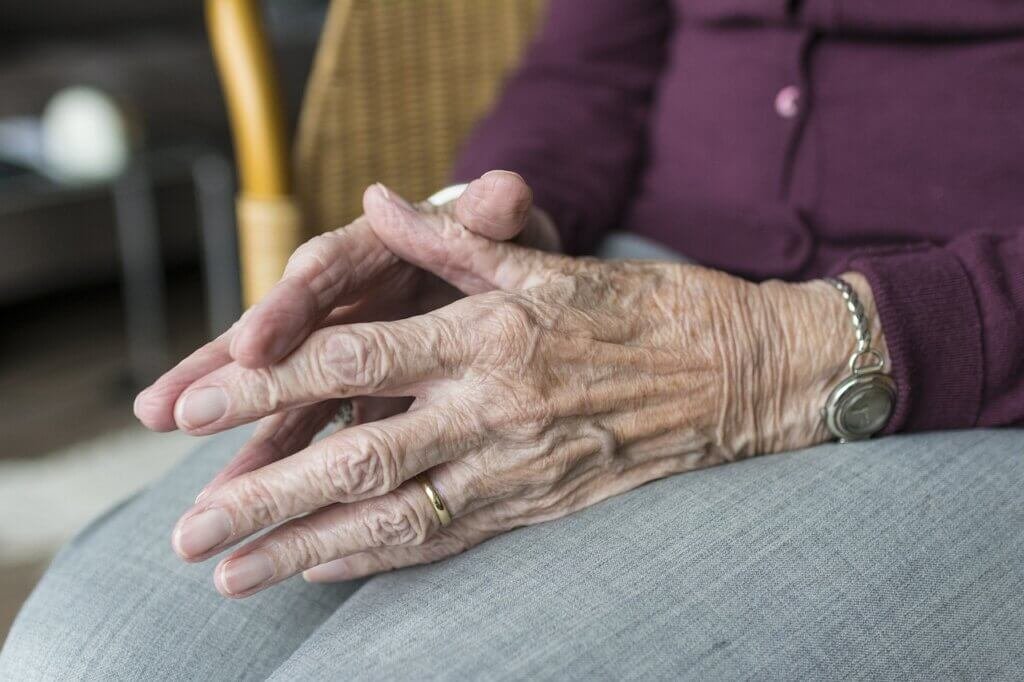
Improving Communication Skills
Active Listening Techniques
Being an active listener is a fundamental aspect of effective communication. When engaging in conversations with others, genuinely listen to what they are saying without interrupting or formulating your response. Pay attention to their non-verbal cues, such as body language and tone of voice, to fully grasp their emotions and perspectives. Reflect back on what they have shared to demonstrate your understanding and validate their experiences.
Expressing Emotions and Needs
Openly expressing your emotions and needs is important for maintaining healthy relationships. Share your feelings, thoughts, and desires with your loved ones in a respectful and honest manner. Communication is a two-way street, so encourage them to express their emotions and needs as well. By creating an open and safe space for both parties to communicate, you foster a deeper connection and understanding.
Using Non-Verbal Communication
Non-verbal communication plays a significant role in how we interact with others. Pay attention to your body language, facial expressions, and gestures when engaging in conversations. Maintain eye contact, nod in agreement, and use appropriate hand movements to enhance your communication. Being aware of these non-verbal cues helps convey your message effectively and promotes better understanding.
Resolving Conflict
Conflict is a natural part of any relationship, and learning how to navigate through it is essential for maintaining healthy connections. When conflicts arise, approach them with respect and empathy. Listen to the other person’s perspective, and strive to find a solution that meets the needs of both parties. Be willing to compromise and seek common ground, understanding that healthy relationships require open communication and a willingness to resolve conflicts peacefully.
Embracing Technology
Learning to Use Social Media and Messaging Apps
Technology can be a powerful tool for staying connected with loved ones, especially when physical distance is a factor. Learning how to use social media platforms like Facebook, Instagram, or LinkedIn can help you stay updated with the lives of your family and friends. Additionally, messaging apps like WhatsApp or Skype enable real-time communication, allowing you to connect with your loved ones no matter where they are in the world.
Participating in Online Communities
The internet offers a vast array of online communities, forums, and discussion boards that cater to various interests and hobbies. Joining these communities allows you to connect with individuals who share your passions, providing a platform for meaningful interactions. Whether you are interested in book clubs, gardening, or even niche hobbies, there are online communities ready to welcome you and provide the opportunity to build new relationships.
Joining Video Chat Platforms
Video chat platforms such as Zoom, Skype, or FaceTime have become invaluable tools for staying connected with loved ones, especially when physical meetups are not possible. These platforms offer the chance to see and interact with your friends and family in real-time, allowing for more personal and meaningful conversations. Whether it’s sharing stories, playing virtual games, or simply chatting over a cup of tea, video chats provide an avenue for building and maintaining relationships even from afar.
Using Technology to Stay Connected with Loved Ones
Beyond social media, messaging apps, and video chat platforms, technology offers various other means to stay connected with your loved ones. Apps like FamilyAlbum or Google Photos allow you to share and enjoy photos and videos with your family and friends. Additionally, there are applications designed specifically for seniors that provide easy-to-use interfaces for communication, health monitoring, and entertainment. Embracing technology opens up a world of possibilities for fostering meaningful relationships in the digital age.
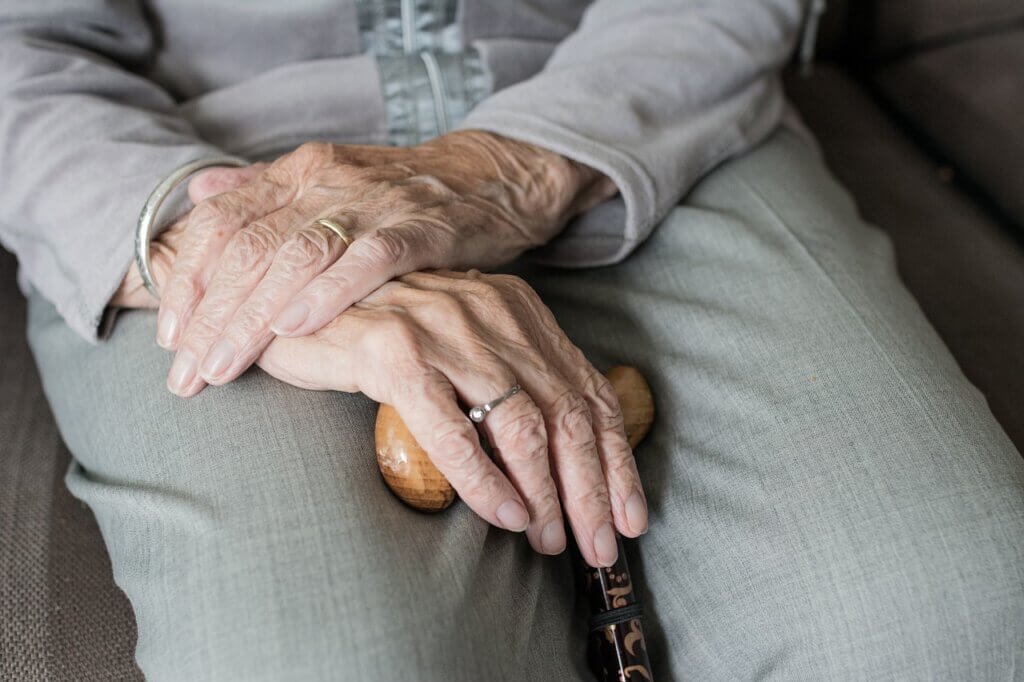
Engaging in Meaningful Hobbies and Activities
Exploring New Interests and Passions
Engaging in meaningful hobbies and activities is a great way to find joy and purpose in your life. Explore new interests and passions that you have always wanted to pursue but never had the time for. Whether it’s painting, gardening, playing a musical instrument, or learning a new skill, these activities offer opportunities for personal growth and fulfillment. Additionally, by engaging in activities you are passionate about, you increase the chances of meeting others who share your interests and can form new connections.
Joining Hobby Groups and Clubs
Joining hobby groups and clubs related to your interests is an excellent way to connect with individuals who share your passions. Whether it’s a photography club, a book club, or a knitting group, these organizations provide a platform where you can interact with like-minded individuals. Engaging in discussions, sharing tips and techniques, and collaborating on projects fosters a sense of camaraderie and creates opportunities for deepening relationships.
Attending Cultural and Recreational Events
Attending cultural and recreational events not only provides entertainment but also offers opportunities to socialize and connect with others who appreciate similar cultural experiences. Whether it’s visiting art galleries, watching theater performances, or attending music concerts, these events create a shared sense of enthusiasm and provide valuable opportunities for conversation and connection.
Participating in Sports and Fitness Activities
Engaging in sports and fitness activities is not only beneficial for your physical health but can also help you form meaningful relationships. Whether it’s joining a walking group, taking up yoga classes, or participating in group exercise sessions, these activities allow you to meet others who prioritize their well-being. Exercising together provides a common goal and creates bonds through mutual motivation and support.
Seeking Professional Support
Counseling and Therapy Services
Seeking professional support, such as counseling or therapy services, can be immensely beneficial in maintaining emotional well-being and fostering healthy relationships. A trained therapist can provide guidance, support, and strategies for navigating through difficult emotions and relationship challenges. Therapy sessions can offer a safe space to explore your feelings, gain insight into your relationships, and develop effective communication skills.
Joining Support Groups for Older Adults
Joining support groups specifically tailored for older adults can provide a sense of belonging and camaraderie. These groups bring individuals together who are facing similar challenges and life experiences, creating an environment where members can share their stories, offer support, and learn from one another. Being part of a support group not only provides emotional support but also helps to combat feelings of loneliness and isolation.
Consulting Geriatric Social Workers
Geriatric social workers are experts in the unique challenges faced by older adults. These professionals can assess your needs, identify resources, and provide guidance on building and maintaining relationships in old age. They offer valuable support in navigating healthcare systems, addressing financial concerns, and connecting with community resources. Consulting a geriatric social worker provides a holistic approach to promoting your overall well-being and fostering meaningful relationships.
Reaching Out to Non-Profit Organizations
Non-profit organizations often offer a range of services and programs aimed at supporting older adults. These organizations may organize social events, provide volunteer opportunities, or offer counseling services. By reaching out to non-profit organizations in your community, you can tap into the resources and support they provide, creating opportunities to connect with others and foster meaningful relationships.

Building Intergenerational Relationships
Mentoring Programs for Younger Individuals
Participating in mentoring programs that connect older adults with younger individuals is a wonderful way to build intergenerational relationships. These programs provide opportunities to share life experiences, offer guidance, and establish meaningful connections. Mentoring not only benefits the younger generation by providing them with valuable insights and support but also offers older adults a sense of purpose and fulfillment.
Volunteering with Youth Organizations
Volunteering with youth organizations is an excellent avenue to engage with younger individuals and create intergenerational relationships. Whether it’s tutoring at a local school, coaching a youth sports team, or assisting at a youth center, these activities foster connections with young people while making a positive impact on their lives. Sharing your skills, knowledge, and experiences can inspire and empower younger generations.
Connecting with Grandchildren and Younger Family Members
Connecting with grandchildren and younger family members is a special opportunity to build intergenerational relationships within your own family. Spend quality time with your grandchildren, engaging in activities they enjoy and creating lasting memories together. Offer support and guidance while also allowing them to share their unique perspectives and experiences, strengthening the bond between generations.
Participating in Intergenerational Activities
Participating in intergenerational activities provides opportunities to build relationships with individuals from different age groups. Look for community programs or events that bring people of different ages together, such as intergenerational gardening projects, art workshops, or community service initiatives. These activities encourage mutual learning, understanding, and appreciation, creating connections that transcend generational boundaries.
Cultivating Self-Awareness and Emotional Well-being
Reflecting on Personal Values and Priorities
Cultivating self-awareness involves reflecting on your personal values and priorities. Take the time to identify what truly matters to you and align your actions and relationships accordingly. Being aware of your values allows you to make conscious choices that contribute to your emotional well-being and foster meaningful relationships.
Practicing Mindfulness and Meditation
Incorporating mindfulness and meditation into your daily routine can be instrumental in maintaining emotional well-being. These practices help you become more present in the moment, grounded in your thoughts and emotions, and aware of your interactions with others. By cultivating mindfulness and meditation, you enhance your ability to engage in meaningful conversations and build more authentic connections.
Seeking Emotional Support
Recognizing when you need emotional support and seeking it is a crucial aspect of fostering meaningful relationships. Reach out to trusted friends, family members, or professionals when you are going through challenging times or experiencing emotional difficulties. Sharing your feelings and seeking support can alleviate emotional burdens and strengthen the relationships in your life.
Engaging in Self-Care Activities
Engaging in self-care activities is essential to nourish your emotional well-being and enhance your capacity for meaningful relationships. Take the time to do things that bring you joy and rejuvenation, whether it’s reading a book, going for a walk in nature, practicing a hobby, or indulging in a spa day. Prioritizing self-care allows you to show up in your relationships with others as your best and most fulfilled self.
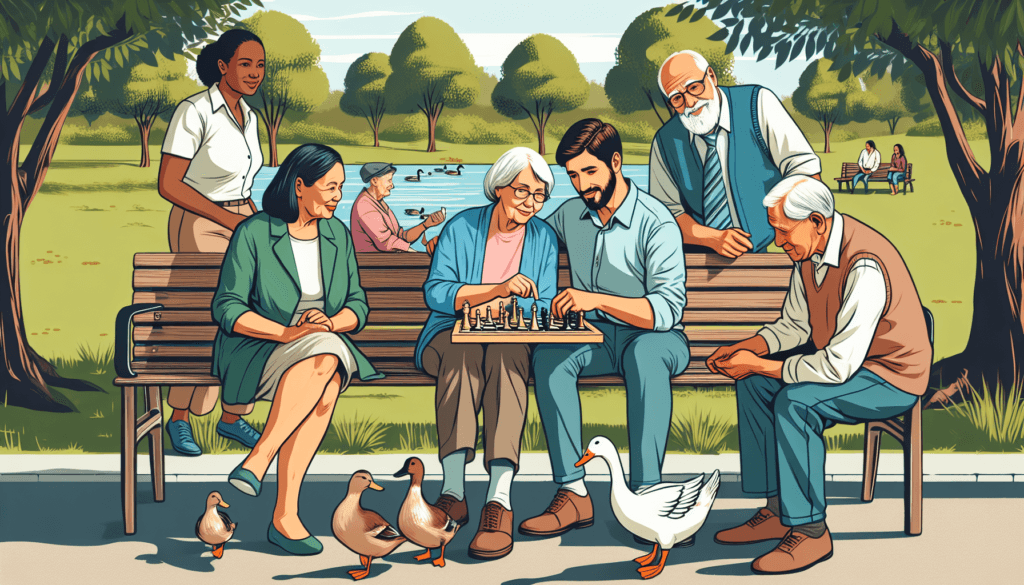
Maintaining Healthy Boundaries
Understanding Personal Limitations
Understanding your personal limitations is crucial for maintaining healthy boundaries in your relationships. Recognize your physical, emotional, and mental boundaries and communicate them openly and honestly with others. Be aware of your capacity to give and receive in relationships, and set boundaries that protect your well-being.
Communicating Assertively
Assertive communication is key to maintaining healthy boundaries and ensuring that your needs and values are respected. Express your thoughts, feelings, and desires clearly and respectfully. Avoid passive or aggressive communication styles and strive for a balanced approach that promotes open and honest dialogue.
Recognizing Manipulative Behaviors
Being aware of manipulative behaviors is important for protecting yourself and maintaining healthy boundaries. Recognize signs of manipulation, such as guilt-tripping, gaslighting, or emotionally blackmailing, and assertively address these behaviors. Surround yourself with individuals who respect your boundaries and support your well-being.
Setting and Respecting Boundaries
Setting boundaries is essential for maintaining healthy relationships, but it is equally important to respect the boundaries of others. Clearly communicate your boundaries to those around you and be mindful of their boundaries as well. By establishing and honoring boundaries, you create an environment of mutual respect and understanding.
Conclusion
Building and fostering meaningful relationships in old age is a journey that requires intention, effort, and a willingness to connect with others. By joining social clubs and community groups, strengthening existing relationships, improving communication skills, embracing technology, engaging in meaningful hobbies and activities, seeking professional support, building intergenerational relationships, cultivating self-awareness and emotional well-being, maintaining healthy boundaries, and practicing gratitude, you can create a supportive network that enhances your well-being and enriches your life. Remember, it is never too late to invest in meaningful relationships and enjoy the benefits of connection and companionship in your old age.

